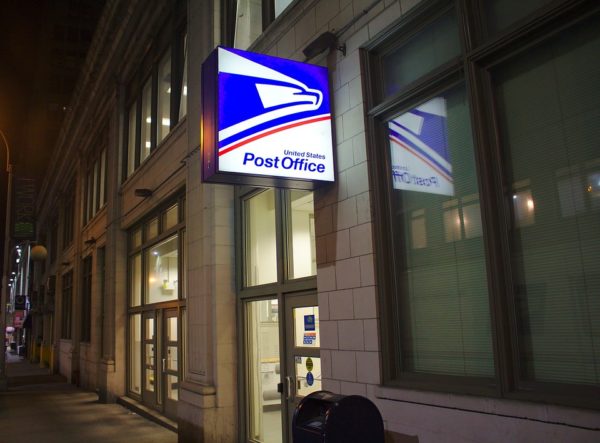
On January 11, the United States Postal Inspection Service’s Internet Covert Operations Program (ICOP), sent bulletins pertaining to January 6 protests to law enforcement agencies around the country. The bulletins were obtained by the watchdog group Property Of The People.
One of the bulletins, titled “United States Capitol Riot Data Archives”, provides guidelines for law enforcement agencies to view deleted tweets. The report highlights tweets from two users regarding January 6. One of the tweets, from Czech Republic-based company Intelligence X, detailed the creation of a system for people to share pictures and videos from the Capitol. Another tweet from an account called “@donk_enby,” says it includes a link to every Parler post made during the riot.
“This provides individuals the ability to identify individuals on the platform, check internal moderators/admins user interfaces, view influencer network status, etc.” the report states in regards to the @donk_ebny tweet. The tweet also provided a link to hours of footage posted on the platform from the events at the Capitol. Parler was eventually booted off Amazon’s hosting services and had to briefly go offline. When the site did come back online, it included heavily increased moderation and censorship.
Accessing the Parler posts in question was a major focus for law enforcement. The iCOP bulletin suggested that the disappearance of all those posts could create a hurdle for law enforcement efforts to prevent “future violence”, adding that the archive created by @donk_enby could be a useful resource. “Although Parler is currently inactive and inaccessible, efforts fronted by ‘@donk_enby’, Intelligence X, and public contributions of data can assist law enforcement in the analysis and identification of parties involved in the US Capitol Protests,” the bulletin says. “The archived information can assist in the possible mitigation of future violent protests.”
The second ICOP bulletin is titled “Coordination of Militia Groups and Threat to Nancy Pelosi” and was also released on January 11. It focused on a website called “givemebass.com” and referenced a threat made by one of the site’s operators against Nancy Pelosi. It also focused on “Wimkin”, an obscure social media network. The bulletin suggested the website was being used to mobilize militias. “The Wimkin account ‘Vik Freeman’ has been promoting the website ‘givemebass[.]com’ as a portal for communication and coordination which has been posted to multiple militia pages on Wimkin,” the bulletin reads. They added that ICOP analysts were “actively monitoring the website and Wimkin account” for new posts.
A spokesperson for the U.S. Postal Inspection Service said the agency reviews public social media posts as part of a comprehensive security and threat analysis. “News report and social media listening activity helps protect the 644,000 men and women who work for the Postal Service by ensuring they are able to avoid potentially volatile situations while working to process and deliver the nation’s mail every day,” the spokesperson said.
“Law enforcement-intelligence apparatuses raise serious Constitutional questions, serious questions for our democracy,” said Chip Gibbons, the policy director of Defending Rights & Dissent. “The FBI has jurisdiction over domestic terrorism, whereas the Post Office; I don’t even know how they’re involved in this,” he added.
The role of covert law enforcement agencies in surveilling protesters and even helping to organize January 6 events has been well documented. It was recently revealed that the FBI had at least two informants embedded with the Proud Boys during the protests.